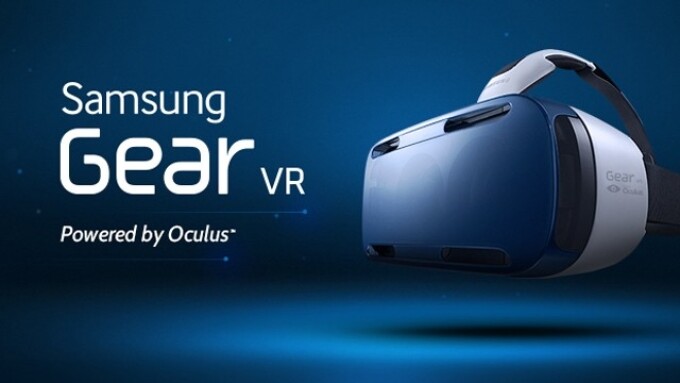LOS ANGELES — As adult content producers contemplate the profit potential of virtual reality porn, the manufacturers tasked with bringing the technology to market are making their own projections for VR’s future and the various form factors it may take.
Korean tech powerhouse Samsung provides an ideal example, with the company enjoying perhaps the highest share of consumer VR penetration, with more than a million users of its $99 Gear VR headset — an add-on for Galaxy and Note devices that was widely provided free during launch promotions and also promoted via high-profile television advertising and social media campaigns.
As a market leader, the company is in a position to understand the dynamics — and the timeframe for deployment — of VR and the components that it needs to work, including device-based headsets such as Gear VR and a mobile headset for Google’s Daydream platform, as well as more integrated solutions.
According to Samsung President Young Sohn, further market development hinges on consumer uptake and a willingness to wear headsets — and it may be a multi-year process before the answer is revealed as to whether VR will be a brief fad, or if it will gain the traction that its evangelists are hoping for.
“Is it hype or mainstream?” asks Sohn. “I don’t have a good answer for you today.”
Reports from earlier this year confirmed the company’s development of an integrated headset, offering positional tracking similar to high-end headsets such as the HTC Vive and Oculus Rift. Samsung’s new headset will not require a smartphone to operate, and will reportedly come complete with its own computing, display and other components, such as hand and gesture tracking features.
It sounds great, but the speed of its ongoing development seems to have slowed, in part due to tepid consumer enthusiasm in the face of VR’s massive marketing hype — with Sohn describing the current content vs. hardware adoption dilemma as “a bit of a chicken and egg problem right now.”
Many experts predict that integrated headsets that do not rely on tethered computers, mobile phones or other components, will be required to make the leap to mainstream acceptance, but even working within today’s paradigms poses challenges; with Sohn pointing to issues of low battery life and long latency lagging behind acceptable standards, and says that near-term development will require at least a full doubling or more of current pixel densities.
Samsung’s Galaxy and Note smartphones already have impressive QuadHD displays, but even this level of image quality falls short when mere millimeters from the viewer’s eyeballs, incentivizing the company to boost the resolution of its next generation displays.
One disincentive, however, is the cost, with Sohn predicting that a 10K mobile display could cost up to $10B to develop — a challenging investment to make for an uncertain market.
Despite this financial hurdle, Samsung is leading a 13 company effort to develop a super-resolution 11K mobile display running at 2250 ppi — several times the current number of pixels-per-inch, with 500 ppi-level 2K (2560x1440) displays considered today’s high-end mobile resolution.
Ultra-sharp 11K resolution has an added benefit of providing a visible 3D effect. The result of a unique optical illusion, this effect reportedly offers stunning color and detail, and a glasses-free 3D experience that may hold promise for future VR applications — but it’s still years away from commercial feasibility.
Currently, 8K resolution can be found at the professional level, with consumers slowly warming up to today’s top-tier 4K ultra high definition (UHD) TVs; and while 11K can be seen as overkill for consumers, the Korean display industry understands the trickle-down benefits of its research into better technology, and is thus moving these initiatives forward.
Closer to home, adult content creators need to look at the devices that are now available to consumers and to understand the projected timeframe for their mass-market uptake, so they know the audience’s size and viewing capabilities — keys to profitably targeting production.







